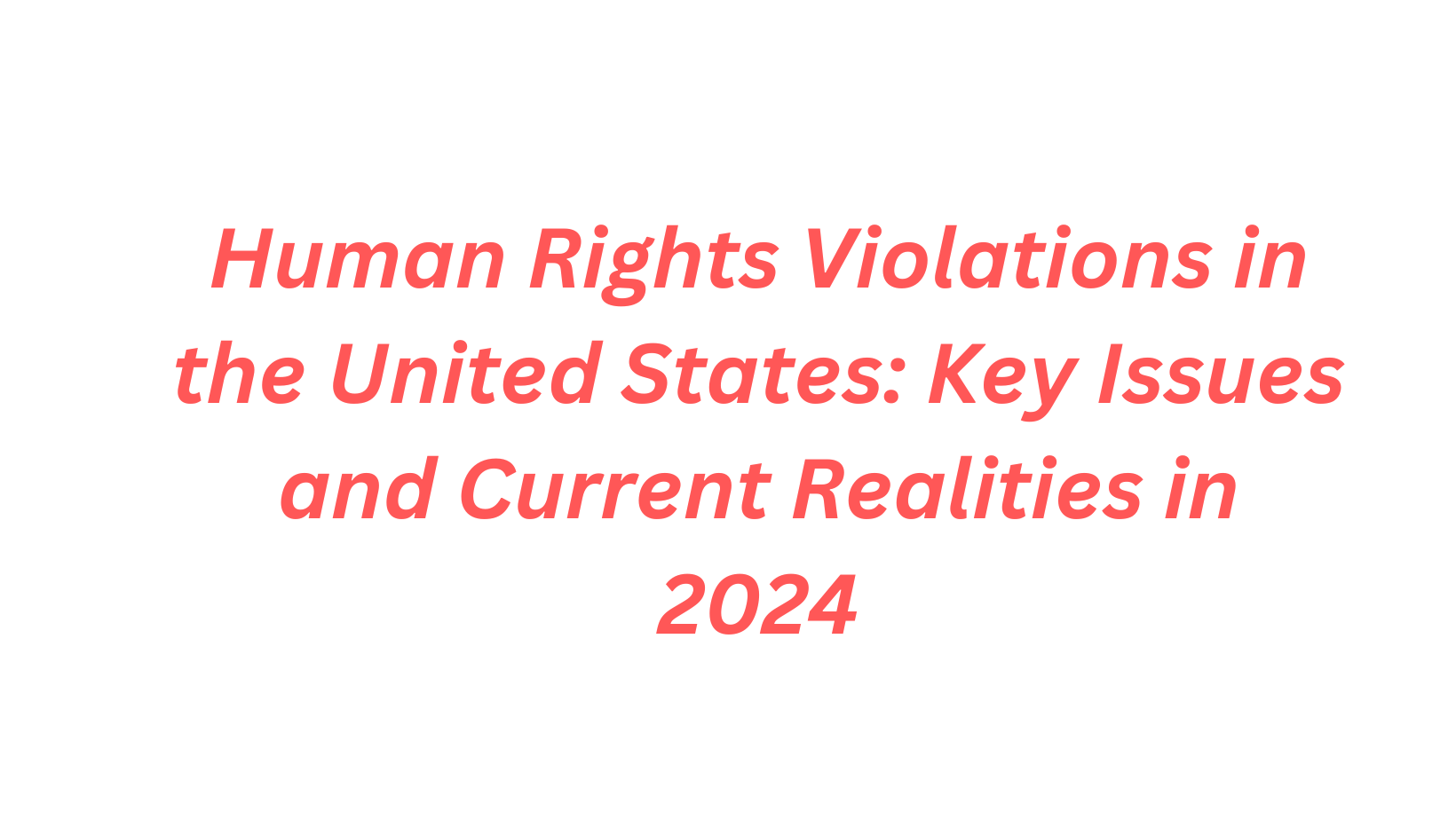Human Rights Violations in the United States: Explore major human rights violations in the United States, from police brutality to immigration detention, and understand the current state of human rights in 2024. (Human rights in America today, Human rights violations United States cases, Human rights violations examples, Human rights violations 2024, human rights in the U.S. vs other countries, Human rights issues today, Human rights violations today)
Introduction
The United States has long stood as a symbol of freedom and justice Worldwide. However, beneath its democratic image lies a complex history and present reality of human rights violations. From racial discrimination and police violence to the conditions faced by immigrants and the ongoing issues within the criminal justice system, the U.S. faces significant human rights challenges that are impacting millions of lives today. In this article, I’ll dive into the most pressing human rights concerns, providing real data, stories, and how these issues affect everyday Americans.
Human Rights Violations in the United States
Racial Discrimination and Police Brutality
- Overview of how racial discrimination affects various ethnic groups in the U.S., especially African American communities.
- Statistics on police violence, including recent data on fatalities by race.
- Case examples of high-profile incidents, such as George Floyd, and Breonna Taylor, and their impacts on policy and social movements.
- Discussion on efforts made to reform policing policies and why these efforts often fall short.
Mass Incarceration and Prison Conditions
- Overview of mass incarceration rates, focusing on disproportionate impacts on Black and Latino populations.
- Conditions within U.S. prisons include overcrowding, healthcare access, and allegations of abuse.
- Example cases of lawsuits or investigations into prison mistreatment.
- Overview of movements for criminal justice reform, such as the push to end mandatory minimum sentencing.
Immigration Detention and Family Separation
- The reality of immigration detention facilities, including human rights concerns around overcrowding, sanitation, and access to medical care.
- Statistics on detained immigrants, including children and families, and recent data on the length of detentions.
- Example cases of family separation and public outcry over these practices.
- Updates on policy changes and advocacy efforts for immigrant rights.
Labor Rights Violations
- Types of labor rights violations in the U.S., from wage theft to unsafe working conditions.
- Data on wage inequality and the impact on minority workers, with examples of sectors where these issues are most prevalent (e.g., agriculture, construction).
- Analysis of recent labor strikes or lawsuits highlighting unfair practices.
- Discuss the role of labor unions and workers’ advocacy groups in pushing for fair treatment.
Gender-Based Violence and Discrimination
- Statistics on domestic violence, sexual harassment, and gender discrimination cases in the U.S.
- Notable examples of high-profile cases that have raised awareness (e.g., #MeToo movement).
- Overview of protections in place and where gaps exist in legal recourse for victims.
- Efforts and legislation aimed at addressing gender-based violence and workplace discrimination.
Privacy Rights and Surveillance Concerns
- Overview of U.S. surveillance practices and their implications on privacy rights.
- Real data on the scope of government surveillance programs, such as PRISM and the use of facial recognition.
- Examples of lawsuits or public outcry regarding privacy invasions include cases affecting activists and journalists.
- Discussion on balancing national security and individual privacy rights.
Conclusion
In summary, while the United States promotes itself as a champion of human rights, the country faces critical challenges in protecting these rights for all its residents. From racial discrimination to privacy invasions, these issues affect real people every day, shaping lives and communities. The path forward demands continued advocacy, policy reform, and public awareness. As we look to the future, it’s up to all of us to hold institutions accountable and strive for a fairer, more just society. If you’re interested in learning more or taking action, consider connecting with human rights organizations or supporting legislation that promotes equal rights for all.
Other Articles
